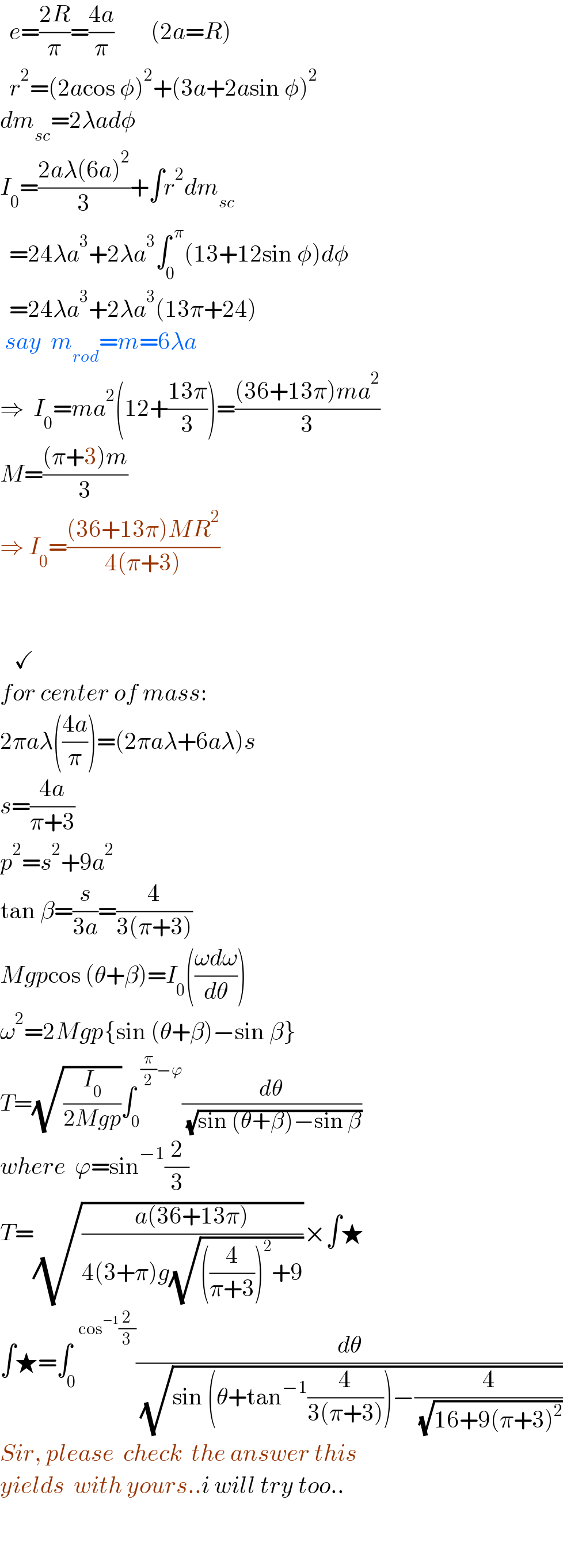
Question and Answers Forum
Question Number 163053 by ajfour last updated on 03/Jan/22

Commented by ajfour last updated on 03/Jan/22

Answered by ajfour last updated on 04/Jan/22

Commented by mr W last updated on 04/Jan/22

| ||
Question and Answers Forum | ||
Question Number 163053 by ajfour last updated on 03/Jan/22 | ||
 | ||
Commented by ajfour last updated on 03/Jan/22 | ||
 | ||
Answered by ajfour last updated on 04/Jan/22 | ||
 | ||
| ||
Commented by mr W last updated on 04/Jan/22 | ||
 | ||